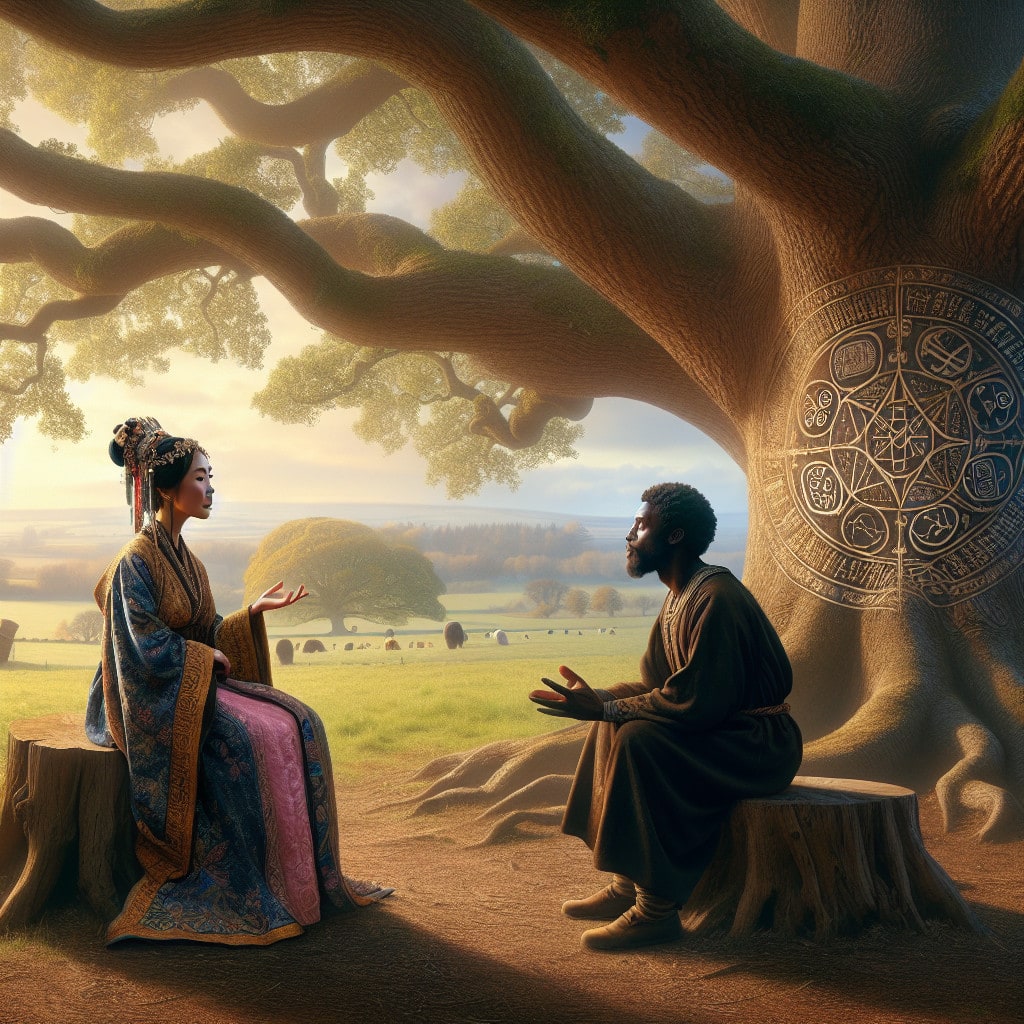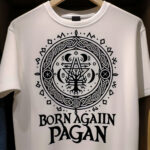This article will explore the concept of a pagan within Christianity and the various ways in which individuals may choose to approach the religion. We will look at the history of paganism and how it has become intertwined with Christianity, how it is practiced today, and the potential benefits of incorporating pagan elements into a Christian life. We will also examine any potential challenges that may arise from this combination, as well as how paganism can offer a deeper understanding of Christianity. Ultimately, this article seeks to provide an understanding of the complexities of being a pagan in Christianity, in order to help readers make the best decisions for their own spiritual journeys.

Paganism is an ancient religious tradition that has been around for centuries. It is often seen as a spiritual practice that is closely linked to nature, and it is an umbrella term that covers many different belief systems and practices. Paganism is a varied and diverse religion, but its core beliefs are often focused on the relationship between humans and the divine, and how humans can experience the divine in their everyday lives. It is believed that Pagans have a deep respect for the natural world and that they seek to live in harmony with it. Paganism has often been seen as a form of religious dissent in the face of more mainstream religions such as Christianity, and this has resulted in a certain degree of misunderstanding and prejudice.
What is Paganism?
Paganism is an umbrella term that covers a wide range of spiritual and religious beliefs and practices. It is an ancient tradition that predates monotheism, and is closely associated with nature and the cycles of the seasons. Pagans believe in a variety of different deities and spirits, and have a deep reverence for nature and the environment. Paganism is a polytheistic religion, meaning that it believes in multiple gods and goddesses, and it places great emphasis on personal spiritual growth and connection with the divine.
Paganism is a very individualistic religion, and it is up to each practitioner to decide how they wish to practice their beliefs and which gods and goddesses they wish to venerate. There is no one central authority that dictates the beliefs or practices of Pagans, and it is up to each individual to decide how they wish to express their faith. One of the key beliefs of Paganism is that each person has the right to choose their own spiritual path, and that this path should be respected by others.
What is the Relationship Between Paganism and Christianity?
Paganism and Christianity have a long and complicated history, and the two religions have had a complex relationship over the centuries. In the early days of Christianity, Pagans were often persecuted for their beliefs, and many Pagans were forced to convert to Christianity or face death. This persecution continued for centuries, and it was only in the 20th century that the relationship between Paganism and Christianity began to improve. Today, Paganism is generally accepted by mainstream Christianity, and there are many Christians who are open to the idea of Paganism and who are willing to learn more about it.
The two religions still differ in many ways, however. Christianity is a monotheistic religion, meaning that it believes in one God, while Paganism is a polytheistic religion that believes in multiple gods and goddesses. Christianity is also a religion centered around salvation and redemption, while Paganism is more focused on living in harmony with nature and with the divine. Despite their differences, however, the two religions have many similarities, and both have a long history of respecting and honoring the spiritual paths of others.
What is Christian Paganism?
Christian Paganism is a term that is used to describe the combination of Pagan beliefs and practices with those of Christianity. Christian Pagans often venerate the same deities as traditional Pagans, but they may also choose to incorporate certain aspects of Christianity into their practices. For example, some Christian Pagans may choose to celebrate Christian holidays such as Easter and Christmas, while others may choose to honor the same gods and goddesses as traditional Pagans. It is important to note, however, that Christian Paganism is not a recognized religion, and it is up to each individual to decide how they wish to express their beliefs.
Christian Paganism is often seen as a form of religious dissent in the face of more mainstream religions such as Christianity, and this has resulted in a certain degree of misunderstanding and prejudice. Despite this, many Christian Pagans have found acceptance and support from both the Pagan and Christian communities, and there are now many organizations and websites dedicated to helping Christian Pagans learn more about their faith and practice it safely and respectfully.
Conclusion
Paganism is an ancient religious tradition that has been around for centuries, and it is an umbrella term that covers many different belief systems and practices. It is closely linked to nature and is often seen as a spiritual practice, and it is a polytheistic religion that believes in multiple gods and goddesses. Paganism and Christianity have had a complicated relationship over the centuries, but today they are generally more accepting of each other, and there are many Christian Pagans who are open to the idea of Paganism and who are willing to learn more about it. Christian Paganism is a term used to describe the combination of Pagan beliefs and practices with those of Christianity, and it is important to note that it is not a recognized religion. Christian Pagans have found acceptance and support from both the Pagan and Christian communities, and there are now many organizations and websites dedicated to helping Christian Pagans learn more about their faith and practice it safely and respectfully.
In conclusion, it is clear that although Paganism and Christianity are two distinct religions, there is a significant overlap between the two. The Pagan elements of Christianity are not only evident in the rituals and symbols of the Christian faith, but also in the moral and ethical values that are shared by both religions. Ultimately, Paganism and Christianity are both rooted in the same source of sacred knowledge, and the two traditions can be seen as complementary paths for spiritual exploration. By understanding the shared history between the two religions, we can gain a deeper appreciation for the richness of both Pagan and Christian traditions.





